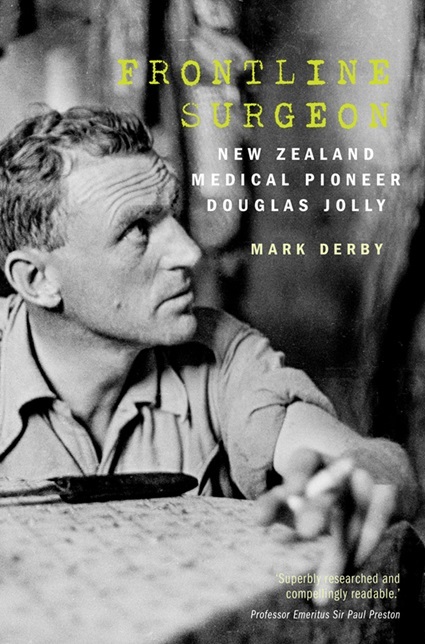Mayor's column: Doug Jolly's legacy celebrated in Cromwell
Mayor Tim Cadogan - Opinion
13 July 2024, 5:30 PM
 Central Otago Mayor Tim Cadogan. PHOTO: File
Central Otago Mayor Tim Cadogan. PHOTO: FileI had the privilege of enjoying another incredible community event this week with the launch of “Frontline Surgeon”, the biography of Dr Douglas Jolly, which was held in Cromwell on Wednesday night.
While the Jolly name is familiar in Central Otago, until recent times the extraordinary life and contribution of Doug Jolly was not.
That has now all changed thanks to the years of work put in by author Mark Darby.
So, who was Doug Jolly you may well ask?
Jolly was born in Cromwell in 1904, was educated at Otago Boys' High School and then the University of Otago Medical School before leaving New Zealand to complete his training and qualification as a surgeon.
Just weeks before his final exam, he volunteered to use his skills to assist in the Spanish Civil War where he became a leading battlefield surgeon, something that he continued doing in North Africa and Italy in World War Two.
During this time, he was probably the best battlefield surgeon in the war, but more importantly than that, in 1940 he wrote “Field Surgery in Total War”.

“Frontline Surgeon”, the biography of Dr Douglas Jolly. PHOTO: Supplied
This book, calling on his experiences in Spain, totally changed the way battlefield casualties were treated in World War Two and beyond, leading directly to the saving of countless thousands of Allied lives that would otherwise have succumbed to wounds.
You may well recall the TV series MASH?
What you saw there, bar the use of helicopters, is a direct result of Doug Jolly’s book, as it was the leading text used by US Forces in Korea and on to Vietnam.
On Wednesday night, the gathering in Cromwell heard from Alexandra man Graye Shattky who told of how in Vietnam an American medic, using his learnings from Doug Jolly’s book, saved the life of one of his troops.
It was incredibly moving to hear this real-life account of the value of Doug Jolly’s work.
We also heard from Doug’s step-granddaughter who had come from Canberra to be there for the book launch.
She told the story of Doug as the kind, funny man she knew as a child and the incredible story of how she dragged a box of his notes, photos, memoirs and other writings around the world with her, knowing they were important but not knowing how to get them into the light of day.
This box proved a vital resource to Mark Darby in writing this book.
We owe a debt of gratitude to Mark for saving this story of one of the sons of Central Otago that was almost lost to time.
It’s a bloody good read and like so many things, a source of continued gratitude that we live in this place, in these times.






